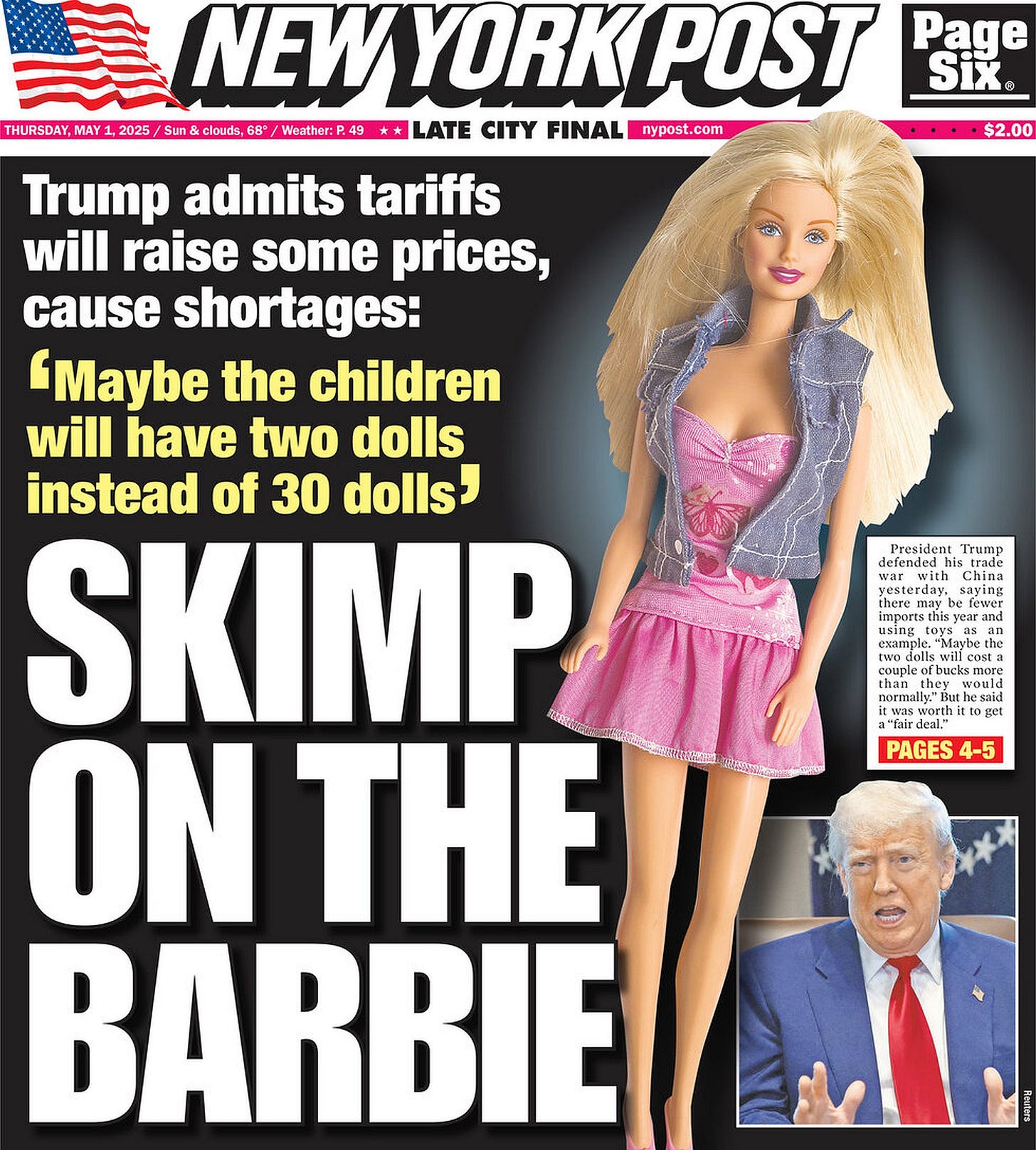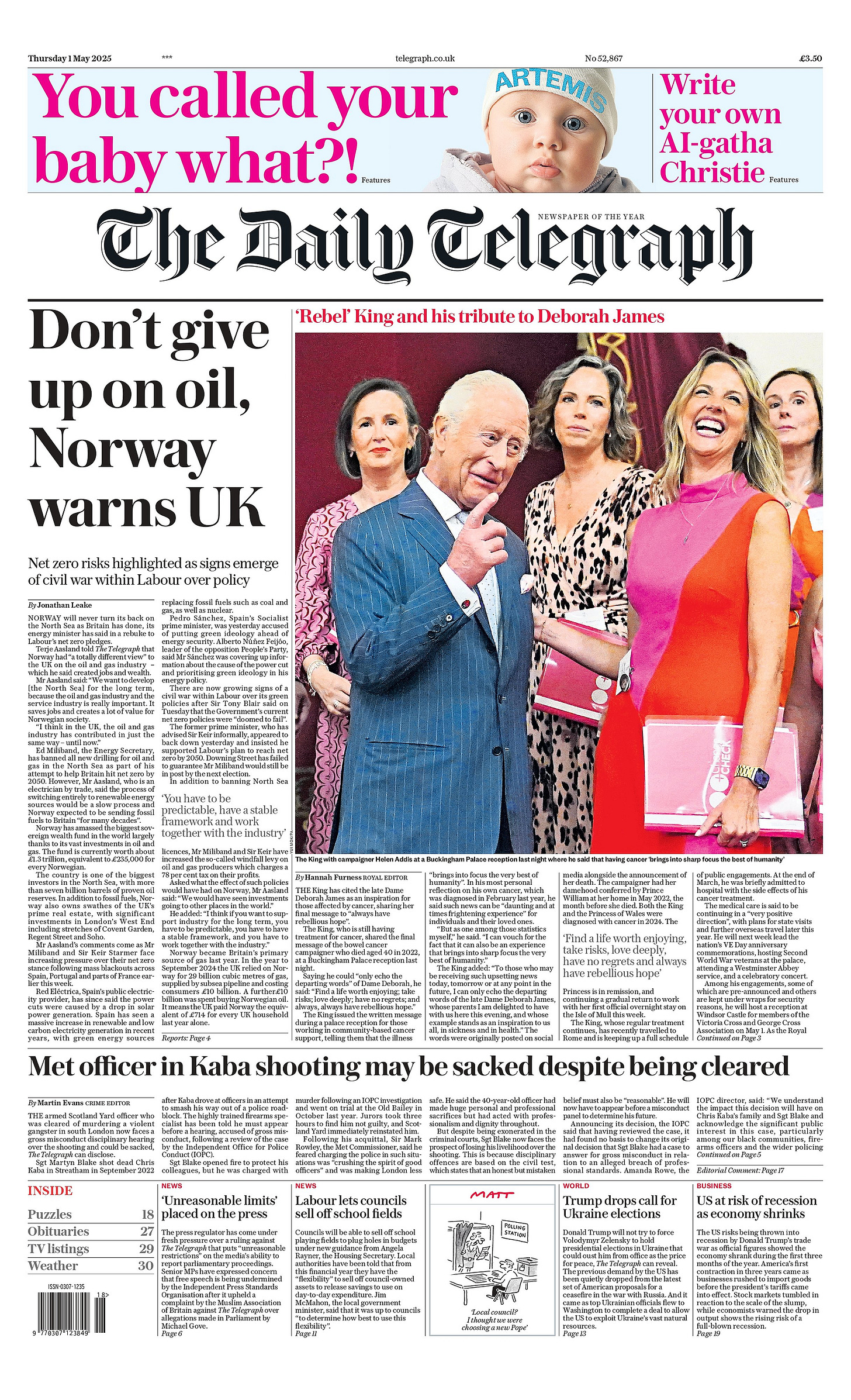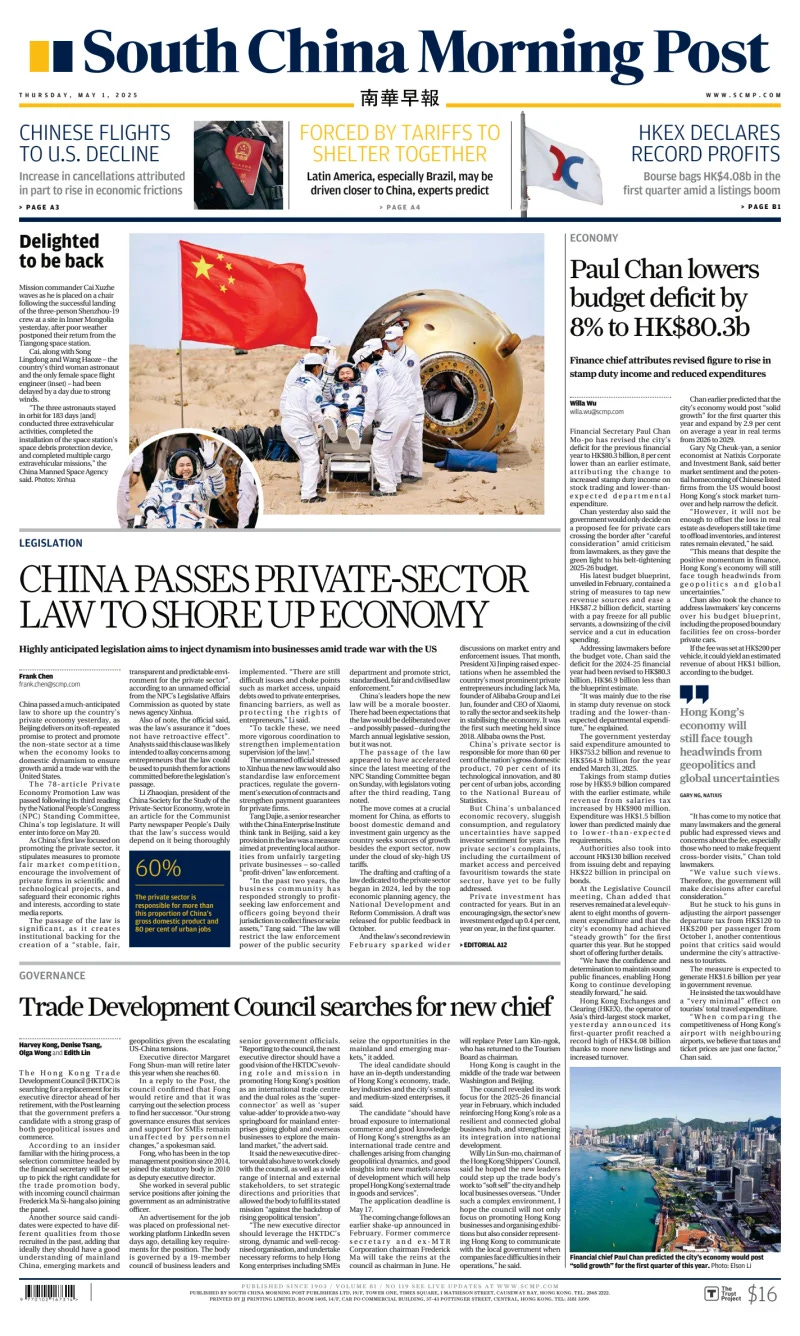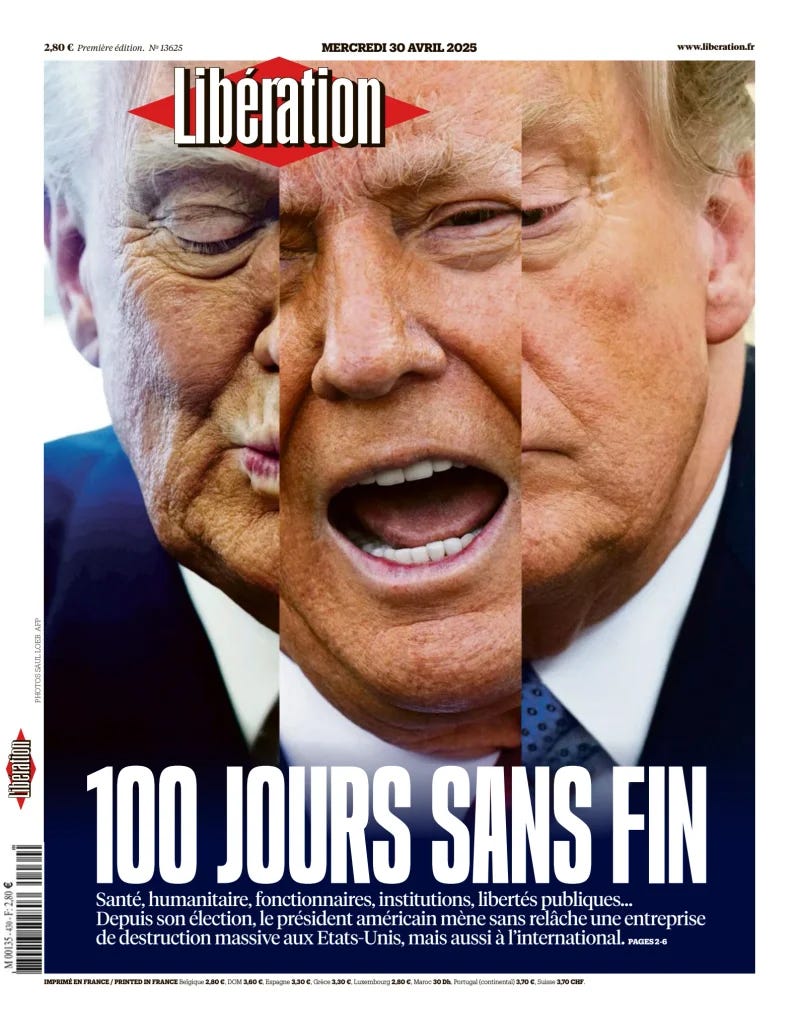Symbol Over Substance in U.S.-Ukraine Minerals Deal
Critics warn the agreement lacks detail, omits security guarantees, and risks turning Ukraine into an economic satellite.
The US and Ukraine have signed a deal that will give Washington access to some of the war-torn country's natural resources. Months in the making, it sets up an investment fund that Ukraine hopes will cement US assistance as the country struggles to repel Russia three years after the invasion. Trump has previously demanded that Ukraine pay back the $350bn (£264bn) of aid that he claims has been provided by the US during the war - a condition that Zelensky rejected. But Washington appears to have made a concession. Ukrainian Prime Minister Denys Shmyhal said the agreement did not dictate that his country pay back any supposed "debt". The language used by the US in announcing the deal is notably harsher towards Russia than is usually the case from the Trump administration. The agreement refers to "Russia's full-scale invasion.” One intriguing point highlighted by Ukraine's government is that for the first decade of the reconstruction investment fund, profits will be "fully reinvested in Ukraine's economy", either in new projects or reconstruction. This could be potentially significant if there is no financial benefit for the US for 10 years - BBC
CNN Chief International Security Correspondent Nick Payton-Walsh described the deal as largely symbolic. “Trump needed to feel America was getting something back from Kyiv. Ukraine needed to show its relationship with this White House was functional and improving. Ukraine’s allies needed this done and dusted to remove a distraction from the complex talk of military aid and real peace that must now become their focus. The deal’s text also contains two phrases that will be distinctly pleasing to Kyiv. First, it refers to the “large-scale destruction caused by Russia’s full-scale invasion of Ukraine” – an unambiguous statement of blame from a White House that has often preferred to pull its punches. And then it explains how Ukraine might buy arms from the US – vital given the escalating Russian onslaught across the front lines.”
Deputy Chief of Staff Stephen Miller reminded reporters Thursday that the mineral resource deal signed with Ukraine is “payback” for US support of Kyiv
My comment: Even before the ink was dry, the Trump camp began walking back key concessions in the U.S.-Ukraine resources deal—chief among them, the claim that it wasn’t a quid pro quo for the $350 billion Washington says it has provided to Kyiv since the start of Russia’s full-scale invasion. In reality, the figure is closer to $185 billion. At today’s White House press briefing, Deputy Chief of Staff Stephen Miller (see video) undermined the spirit of the deal—and offended many Ukrainians—by calling it “payback” for “the hundreds of billions our taxpayers have spent subsidizing the war in Ukraine.” As I told several broadcasters, watching this unfold as a Canadian raises deep skepticism about the Trump administration’s intentions. This is an administration that has spent much of its first 100 days dismantling long-standing U.S.-Canada agreements. And having spent much of the past three years in Ukraine, I can say with confidence: few Ukrainians want foreign powers interfering with their natural resources. There is widespread fear that a poorly negotiated deal could reduce Ukraine to an economic colony of the United States. Critics of the Zelensky administration argue that rare earth minerals should never have been on the table in discussions with Washington. But once the Trump administration caught wind of an economic opportunity, it pounced. A final note on timing: China’s recent ban on rare earth mineral exports likely sent a chill through the Trump administration. These elements are essential to nearly 2,000 components used by the U.S. military (heavy rare earths are used in many military fields such as missiles, radar, and permanent magnets, BBC reported. A CSIS report notes that defence technologies including F-35 jets, Tomahawk missiles and Predator unmanned aerial vehicles all depend on these minerals). Ukraine suddenly appeared as a potential alternative—though production is years away—and as a source the administration might more easily pressure and control.
Watch my CTV interview on the deal here
President Trump announced on Thursday that he was removing his national security adviser, Michael Waltz, nominating him as ambassador to the United Nations and installing as his interim replacement Secretary of State Marco Rubio, who will remain the nation’s top diplomat. It is the first significant personnel overhaul of top White House aides, and the kind of shake-up that Mr. Trump had sought to avoid in his second term. Mr. Waltz had been on thin ice as national security adviser for months, but his position became more precarious after it became public that he organized a group chat on the commercial messaging app Signal to discuss a sensitive military operation in Yemen and accidentally included a journalist in the conversation. Most of Mr. Trump’s advisers had already viewed him as too hawkish to work for a president who campaigned as a skeptic of American intervention and eager to reach a nuclear deal with Iran and normalize relations with Russia. Mr. Waltz’s deputy, Alex Wong, who worked on North Korea issues in Mr. Trump’s first term and who is considered a more moderate Republican with substantial national security experience, is also expected to be removed, according to a senior administration official with knowledge of the situation - NYT
“This is an elected government, obviously, but it is behaving as an authoritarian one. It is engaging in a rapid and systematic weaponization of the machinery of government and its deployment to punish rivals, to protect allies and to bully elements of the media” - Steven Levitsky, a professor of government at Harvard University and co-author of How Democracies Die
Countless people have left authoritarian countries for the promise of freedom and safety in the United States say some of the administration's tactics reminded them of those used by the regimes they fled. In fact, a survey in February found that hundreds of U.S.-based scholars think the United States is moving swiftly from a liberal democracy toward some form of authoritarianism. "This is an elected government, obviously, but it is behaving as an authoritarian one, " says Steven Levitsky, a professor of government at Harvard University and co-author of How Democracies Die. "It is engaging in a rapid and systematic weaponization of the machinery of government and its deployment to punish rivals, to protect allies and to bully elements of the media." A survey in February found 57% of professors in the U.S. felt more pressure under the Trump administration to self-censor when discussing Israeli-Palestinian issues. In addition to taking on universities, the Trump administration has also targeted news organizations that cover the president critically. The Federal Communications Commission is investigating broadcast news networks — including ABC, CBS and NBC — over allegations that they have favored Democrats. Trump has also attacked public broadcasters. In a social media post, he called NPR and PBS "radical left monsters" that hurt the country - PBS
The United States has deported more than 100 citizens from Uzbekistan, Kazakhstan, and Kyrgyzstan to Tashkent in what Uzbek officials said is part of initiative aimed at ensuring the rights of its citizens caught in "difficult situations abroad." The flight from New York to Tashkent was reportedly arranged on April 30 and operated by Uzbekistan Airways. A statement released by the US Department of Homeland Security (DHS) said that Uzbekistan funded the operation in full. The deportations appear to mark the first such deal between the United States and a foreign government since the President Donald Trump took office in January. "We are talking about citizens who have violated visa requirements or have expired their legal stay in the United States," Ahror Burkhanov, a spokesman for the Uzbek Foreign Ministry, wrote in a social media post. "The repatriation process will be organized on the basis of humanitarian and legal principles, ensuring the dignified and safe return of citizens," he added, though he did not say how many of those deported on April 30 were Uzbek nationals. Since taking office on January 20, Trump has declared a crackdown on illegal immigration - RFE/RL
Thai authorities will verify the names of foreign subscribers of 700,000 mobile phone numbers before deciding whether to terminate their mobile banking services in Thailand in June, according to the minister of digital economy and society (DES). He said the mobile phone numbers had been registered since Jan 1, 2022. About 700,000 mobile phone numbers registered to foreigners in Thailand together with about 1.8 million mobile phone numbers that had not been registered to anyone would be checked, he said. According to the minister, the government requires the names of mobile banking service users and the names of subscribers of mobile phone numbers attached to the mobile banking services to be identical in order to curb technology crime. Otherwise, the mobile banking services will be terminated - Bangkok Post
Advanced flight bookings from China to the US for this summer have declined, the latest data shows amid escalating trade tensions between the economic superpowers. The total number of air tickets purchased for June travel dates fell 25 per cent between March 3 and April 28, according to figures compiled by marketing and tech firm China Trading Desk with help from the aviation data company VariFlight. That means cancellations are outnumbering new bookings, China Trading Desk CEO Subramania Bhatt said - SCMP







